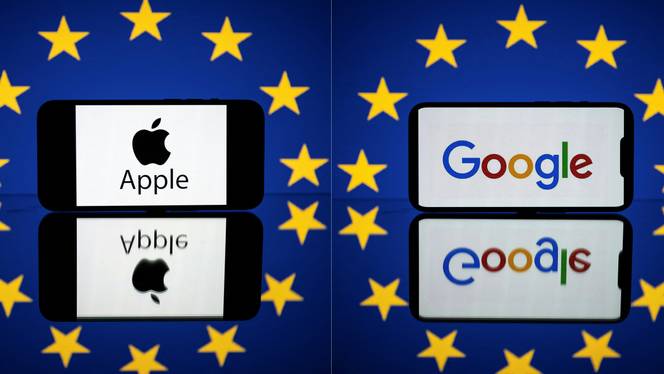The European Union has won two major victories in its ongoing battle against big tech giants, Apple and Google, resulting in substantial financial penalties totaling €16 billion. The EU Court of Justice ruled against Apple’s favorable tax arrangements in Ireland and upheld a record €2.4 billion antitrust fine against Google for its practices with its Shopping service. These decisions represent a major step in the EU’s effort to regulate large technology companies and ensure a level playing field in its markets.
What’s Happening & Why This Matters
Apple’s €13 Billion Tax Case in Ireland
The EU’s highest court sided with the European Commission, concluding that Apple benefited from unlawful tax subsidies in Ireland for many years. The court ruled that Apple paid corporate tax rates as low as 0.005%, which amounted to illegal state aid. This decision reverses a previous ruling by a lower court, confirming that Apple must repay up to €13 billion, plus interest, to the Irish state.
Margrethe Vestager, the EU’s antitrust chief, hailed this judgment as a major win for tax fairness. The case stemmed from revelations about Apple’s tax practices, which involved allocating substantial income to its base in Ireland to benefit from favorable tax treatment. The ruling indicates that EU member states must adhere to their own rules when granting tax benefits to companies.
Apple expressed disappointment with the decision, arguing that it has always paid all taxes owed in every country of operation and denying any special treatment. The company claims it has already paid $20 billion in U.S. taxes on the same profits targeted by the EU ruling. However, the court’s decision has been celebrated by tax justice advocates who argue it exposes and helps address corporate tax avoidance practices within the EU.

Google’s €2.4 Billion Antitrust Fine
On the same day, the EU Court of Justice upheld a €2.4 billion fine against Google for anti-competitive behavior related to its Shopping service. The Commission found that Google had manipulated search results to favor its own price-comparison service, disadvantaging competitors. Google contested this ruling but failed to overturn the decision in the higher court.
The court agreed with the EU that Google’s practices of prominently displaying its own comparison shopping service while relegating competitors’ links lower on search result pages constituted a misuse of its dominant market position. This decision aligns with the non-binding opinion of Advocate General Juliane Kokott, who earlier argued for upholding the fine.
Google responded by stating that it was disappointed with the decision and maintained that the facts were specific to a set of practices already corrected in 2017. Despite this, the ruling reinforces the EU’s stance that dominant companies must ensure fair competition practices and paves the way for the newly enforced Digital Markets Act, which aims to regulate tech giants more strictly.
TF Summary: What’s Next?
These rulings demonstrate the EU’s firm stance in regulating large tech companies and addressing perceived market imbalances. With the Digital Markets Act now in effect, the prominent tech giants — Alphabet, Amazon, Apple, and Meta — can anticipate increased scrutiny and potential legal challenges. The EU’s actions indicate a persistent commitment to promoting fair competition and tax practices within its borders, which may result in more cases and regulatory reforms in the future.


